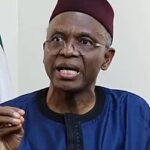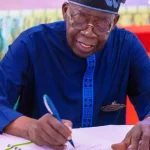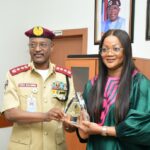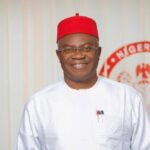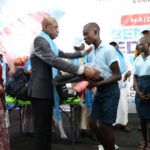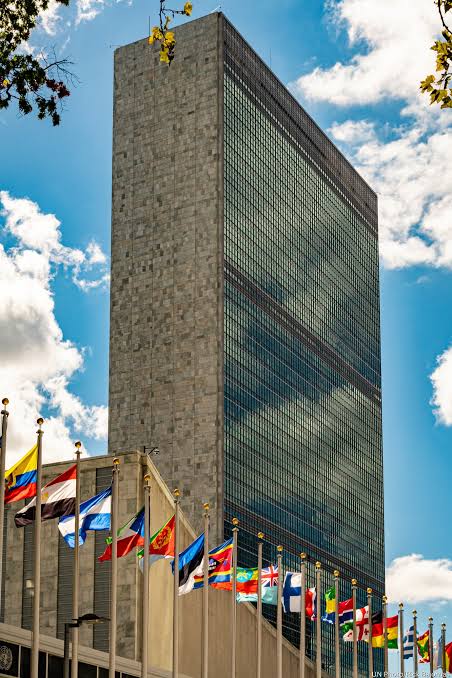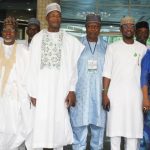By Linus Aleke
From prehistoric period to the enlightenment era or digital age as tech scholars, would prefer to refer to it, migration has remained a recurring decimal.
People of various civilizations, migration expert said, migrated from one point to the other for varying reasons. To some, the expert said, it is economic, to others it is quest for quality education, or search for greener pastures, while to few others it is climatic.
“Animals are also caught in the web of this migration phenomenon. But the remarkable difference between human and animal migration is centred around human classification of migration into regular and irregular migration. Whilst human considers the legality or otherwise of the status of migrants, animal pay deaf ears and blind eyes to such legal instruments, as none even exists in their kingdoms, paving ways for the rules of the jungle,” the expert who preferred not to be mentioned said.
A senior journalist, Mr. Chidi Ugwu, said that various legal instruments and convention, both national and international exists to regulate human migration. These body of laws, he said, either exist to restrict free human movement across national boundaries, for political, economic and security reasons, or to protect the rights of migrants from transit to destination countries.
He noted that the tragic stories of how dead bodies of promising young Africans, especially, Nigerians, who die while, desperately struggling to cross over to Europe through the back door, dots pages of newspapers, as well as the cyber spaces.
Mr. Ugwu regretted that these young Africans, who denied themselves proper burials after cutting short their lives in desperation, had continued to feed wide beasts at the deserts of North Africa, as well as vicious aquatic creatures in the belly of Mediterranean Sea.
He noted that few others, who God shielded from these wide beasts and
repressive weather, as well as flesh eating aquatic animals in Mediterranean Sea, ends up in prisons in Europe, Asia and America or in worst case scenario, exploited by heartless traffickers for years.
Young women amongst them, he said, are turned into sex slaves, that mints foreign currency for the trafficker or drug peddlers for drug lords in these destinations.
The senior Journalist added that these gullible youths, who are daily fleeing their mother land under the guise of seeking greener pastures, most often are ignorant of what awaits them at the other end of the divide, if they are lucky enough to ever arrive their destination alive.
Interestingly, it is in recognition of these humongous dangers associated with illegal migrations, in some rare instances, even regular ones that the United Nations (UN), is paying special attention to migration and human rights issues.
Speaking on the this subject matter, at an end of mission media dialogue in Abuja, the Regional Representative of the West Africa Regional Office of the UN High Commissioner for Human Rights in Dakar, Senegal, Mr. Robert Kotchani, said that migration is natural to human beings and even animals.
The Dakar based Kotchani, who is currently visiting Nigeria, said the mission is aimed at strengthening collaboration and enhancing the promotion and protection of human rights of migrants in Nigeria and West Africa.
Giving credence to the view expressed by an expert in the preceding paragraphs, the UN regional representative said: “We don’t get to stay in one place forever, we move for various reasons, migration can be regular and can also be irregular. The advocacy that the Office of the High Commissioners for Human Rights, and other stakeholders are making is that whether regular or irregular migrants, their rights should be respected with due respect to their dignity, as human beings”.
He posited that there are rules, policies and instruments that are in place to guide the work of immigration officers vis vis migrants, whether they are regular or irregular.
“You can have a genuine visa going somewhere and you are arrested and deported in violation of your human rights. You may also be a victim of trafficking in persons. What we are sensitizing the immigration officers about is to always remember that they are dealing with human beings and these human beings have rights,” he said.
Mr. Kotchani, pointed out that if state officials are to deport someone to his home country, they must do that in a manner, in which is consistent with his person as a human being.
He further averred that it is the work of the government, to handle and properly manage migration, in order to reduce it to the barest minimum, insisting, that it is not the responsibility of the United Nations.
According to him, “There is a general consensus that if one is fine in his country, he will have no reason risking his life or deploying illegal means to migrate to another country. However, there are also rich Africans who go to Europe to spend a lot of money there. There are benefits in migration, no country can do away with migrants”.
While, reaffirming that migration carries a lot of benefits to both transit and destination countries, the UN regional representative, added that migration must be managed in a manner that is consistent with human rights.
The visiting top UN official noted that the global body is looking at the human rights aspect of migration and it is encouraging states to implement the policies that they had put in place, which commands that migrants are treated with humanity and with human rights based approach.
Everyone, he said, has to understand that migration needs to be handled from a purely human rights view points and that there are laws, instruments and regulations available at the global, regional and national levels.
Mr. Kotchani, revealed that the United Nations wants to sensitize relevant stakeholders on the implementation of these regulations and to ensure that those who are responsible for human rights violation are also held to account.
Ms. Ulrike Kahbila Mbuton, Human Rights Officer, OHCHR – West Africa Regional Office (WARO), speaks on the United Nations project, code named, “promise,” which is aimed at promoting the protection of human rights in migration.
Ulrike, explained that the promise project of United Nations, as mentioned by the regional representative focuses on protection of the rights of migrants.
According to her, “This project is a joint initiative between the UN human rights office and the UN office on drugs and crime which is funded by Netherlands. The project started in 2016, it started off initially with Mali, Niger, and Senegal but we are currently in a third face and in this third face we have been able to expand this project to also cover Nigeria as one of the nine countries that we cover.
“Very briefly in terms of the main pillars, that the project touches on, we have four outcome areas. The first two is led by UNODC and the other two is been led by UN office on humans rights. On the first outcome area we are looking at harmonizing the legal frameworks when it comes to issue of dealing with trafficking in persons and smuggling of migrants and also supporting work around the detection and investigation of cases of trafficking in persons and smuggling of migrants. Under the second outcome area, we are equally looking at how to support judicial cooperations to ensure that prosecution of cases that relates to trafficking in persons and smuggling of migrants is effective. Under the third outcome area which then had a lead under the UN human rights office, we are focussing sorely on the promotion and the protection of the rights of migrants. Including migrants who are in irregular situations and this is covering their rights throughout the migrating journey. Wether from the departure points or through their transit locations and up to their destination areas,” she said.
The young Amazon, revealed that a lot of the migrating journey involve the countries that the project does cover.
Ms. Ulrike, further explained: “In this area, some of the work that we do focuses on the issues of advocacy, supporting the engagement between the state in which the project is implemented and the UN human rights mechanism, especially the UN committee on the rights of migrant workers to ensure that this states are able to implement the provision of the convention on the rights of migrant workers and also follow up on the recommendation when they do report to this committee. Under this we also support a lot of capacity building for the relevant actors and I will speak to some of those actors and the works that we have done in Nigeria specifically. We also do a lot of research to look at various human rights violations and also support national human rights Institutions to follow up, to address some of these violations that are experienced by migrants. Under the fourth outcome areas, again under the lead of UN human rights office, we have a dedication to address issue of gender. On the first level, under this outcome area, ensuring that gender is mainstreamed through out the project, even on the part of the project that are led by UNODC, we also support them, work closely with them to ensure that the gender aspect is taken into consideration. And under the second arm of this focus area, we are ensuring that we are able to strengthen the capacity of female practitioners to be involved in addressing the issues of trafficking in persons and smuggling of migrants and also paying a particular attention to issues that affect female migrants”.
Speaking specifically about Nigeria, the UN official said, the promise project yielded few achievements last year which I will like to highlight, noting that she would like to mention some of the key partners they worked with in these achievements she was about to share.
She enumerated these institutions, to include the National Human Rights Commission (NHRC), the National Agency for the Prohibition of Trafficking in Persons (NAPTIP), the Nigerian Immigration Service (NIS), and some of them that his regional representative has mentioned that he was able to meet in the course of his mission.
“We also worked very closely with the civil society as well as other UN agencies to really ensure that we are able to bring that whole of government, whole of society approach and multi stakeholders approach to addressing the issues of trafficking in persons and smuggling of migrants. We are able to build the capacity of staff of the National Human Rights Commission, to ensure that they are able to integrate the human rights base approach into the work that they do to respond to this issues of rights of migrants. We also build the capacity of various civil society organizations to ensure that they are equipped with the information on the rights of migrants. We also supported National Human Rights Commission to establish a technical working group on human rights and migration which already brings together various stakeholders, both from the government, the UN agencies, and civil society groups to enhance the coordination in all the works that are been done to address the rights of migrants,” she concluded.
Also speaking on the role of the media practitioners in migration and human rights advocacy, the visiting regional representative said: “As far as human rights work is concerned, more especially when it comes to the thematic of migration, the role of media professionals cannot be underscored”.
He noted that they play pivotal role in ensuring that the stories are heard, stressing that migration can be pleasant adventure and it can also be a nightmare for some who even lose their live in the process.
Mr. Robert Kotchani, while, advocating for regular capacity building for journalists reporting migration and human rights issues around migrants said: “Sensitization around migration, and awareness raising on the need to uphold human rights in all the stages of migration is very important. And who can do that better than media professionals, and that is why we often want journalists around when the issues are discussed. For you to do your job up to what is expected from you, tailored knowledge on the issue is required. If you are a good journalist, and you are not familiar with your topic of discussion you cannot do a good job about it. Our office is ready to provide capacity building and awareness raising to journalists, on the frame work of promise project”.


